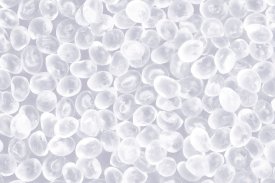Jan 12 2010
NatureWorks LLC, (Minnesota, US) a global leader in the bioplastics industry, is using a variety of material characterization tools from Malvern Instruments to accelerate product development and achieve market leading quality standards. NatureWorks is the world’s leading supplier, under the trade name Ingeo™, of polylactic acid, a high performance polymer with a carbon footprint significantly lower than conventional petroleum-based alternatives.

Data generated using the Viscotek TDAmax, Malvern’s advanced triple detector gel permeation chromatography (GPC) system, and the Rosand RH-7, a floorstanding capillary rheometer, enable the company to tailor the polymer to meet the exacting demands of the polymer processing community. In addition, a Viscotek dilute solution viscosity system provides sensitive quality control.
Ingeo is used commercially in the production of extruded and thermoformed containers, fibers and non-wovens, films, and extrusion and emulsion coatings. In many cases it is processed - extruded, blown and injection molded - using conventional equipment with only minor modification. While this simplifies the displacement of traditional polymers in established markets it demands tight control of polymer properties.
“Both the Rosand and TDAmax have specific features that are of significant value to us,” comments Jed Randall, research scientist at NatureWorks. “We use the Rosand (our second) to assess the effect of additives and molecular structure on extrusion properties such as die swell, melt fracture and shear thinning behaviour. The melt haul-off device is especially useful as it gives a direct measure of melt strength, a key variable for fiber production and melt processing. With the TDAmax we measure absolute molecular weight and the degree of branching in the polymer, an important control parameter.”
The Viscotek TDAmax has an integrated triple detector array that includes a revolutionary low angle light scattering (LALS) detector and a four-capillary differential viscometer. It measures absolute molecular weight, and intrinsic viscosity data, which together quantify branching and molecular size. The Rosand RH7 is a twin-bore floor standing capillary rheometer with unsurpassed performance in terms of speed control, accuracy and dynamic operating range. The haul-off device is an attachment to the rheometer that is used to measure the melt strength and to simulate fiber drawing and blow molding processes.